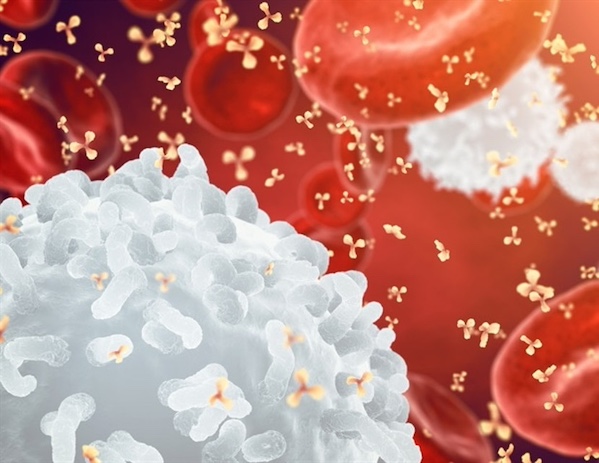$13M NIH grant funds research to rejuvenate immune system in older adults
November 3, 2023
Source: drugdu
 323
323

University of Arizona Health Sciences researchers received a $13.1 million grant from the National Institute on Aging to continue studies aimed at rejuvenating the immune system of older people in order to improve health throughout the lifespan.
Older adults are disproportionally affected by infection, cancer and certain types of autoimmune disease. This is influenced by the fact that as a person ages, their body produces fewer T cells and gets less proficient at maintaining them. T cells are a type of white blood cell essential to the immune system and defense against infection.
Janko Nikolich, MD, PhD, principal investigator, professor and head of the Department of Immunobiology at the University of Arizona College of Medicine – Tucson, said, "It is clear how much our immune system declines with age when you look at all the previous epidemics and pandemics that have hit us, including COVID-19. Older adults die at a rate somewhere between 50 to 300 times more frequently than people in the younger age groups. We are looking at the thymus gland, which develops T cells, and at the lymph nodes, which maintain them, and examining how we can combat the erosion of age by jumpstarting them."
The goal of the National Institutes of Health-funded research is to contribute to the fundamental knowledge of T cell aging and create interventions to improve immune defense. The program consists of three research studies and four supporting cores that span multiple sites across the country.
"This program is a great example of integrated and coordinated team science. We exchange our ideas and findings and troubleshoot each other's experiments," said Nikolich, who leads two UArizona Health Sciences strategic initiatives: Personalized Defense and the Aegis Consortium. "Everyone is working on their separate projects, but each project benefits from what we all discover."
The first project, "Response of aged thymus to injury and rejuvenation signals," is led by Jarrod Dudakov, PhD, associate professor at Fred Hutchinson Cancer Research Center and affiliate associate professor at the University of Washington. The research team hopes to increase their understanding of how the thymus responds to injury and repairs itself.
The thymus gland has a remarkable capacity for bouncing back from acute injury caused by infection, shock or chemotherapy, but this ability deteriorates with age. The project will focus on enhancing thymic regeneration in older individuals, which could result in clinical approaches to enhance the immune system.
The second project, "Role of the microenvironment in regulating early stages of thymic involution and central tolerance," is led by Lauren Ehrlich, PhD, professor of molecular biosciences and oncology at the University of Texas at Austin. It will examine how the cellular composition of the thymus changes with age, which could impact the quantity and quality of developing T cells.
The third project, "Peripheral T cell maintenance defects with aging," focuses on how aging affects the lymph nodes. It is part of Nikolich's continuing studies of how the decline in naive T cells impacts the immune system. Naive T cells are produced in the thymus but need additional support from the lymph nodes to function effectively.
"Our previous research has shown that defects in the lymph nodes can powerfully undermine the benefits of reawakening T cell production in the thymus," said Nikolich, who is a member of the university's BIO5 Institute. "So, even if we can generate a plethora of high-quality T cells, if the lymph nodes are impaired, those T cells will be clueless. They will not be able to quickly react and respond to infection."
The first signs of age-related vulnerability to infection start between the ages of 40 and 50. More drastic declines in the immune systems are seen in the 60s, 70s and 80s. Nikolich says interventions to improve T cells and the immune system could greatly benefit the quality of life for older people and provide substantial economic relief for health care expenses.
This work is supported by the National Institute on Aging, a division of the National Institutes of Health, under award no. 2P01AG052359-06. It is part of a collaborative research effort that also includes investigators from the Fred Hutchinson Cancer Research Center, the Memorial Sloan Kettering Cancer Center, University of Texas at Austin, MD Anderson Cancer Center and Arizona State University.
Source:
https://www.news-medical.net/news/20231101/2413M-NIH-grant-funds-research-to-rejuvenate-immune-system-in-older-adults.aspx
Read more on
- The first subject has been dosed in the Phase I clinical trial of Yuandong Bio’s EP-0210 monoclonal antibody injection. February 10, 2026
- Clinical trial of recombinant herpes zoster ZFA01 adjuvant vaccine (CHO cells) approved February 10, 2026
- Heyu Pharmaceuticals’ FGFR4 inhibitor ipagoglottinib has received Fast Track designation from the FDA for the treatment of advanced HCC patients with FGF19 overexpression who have been treated with ICIs and mTKIs. February 10, 2026
- Sanofi’s “Rilzabrutinib” has been recognized as a Breakthrough Therapy in the United States and an Orphan Drug in Japan, and has applied for marketing approval in China. February 10, 2026
- Domestically developed blockbuster ADC approved for new indication February 10, 2026
your submission has already been received.
OK
Subscribe
Please enter a valid Email address!
Submit
The most relevant industry news & insight will be sent to you every two weeks.



